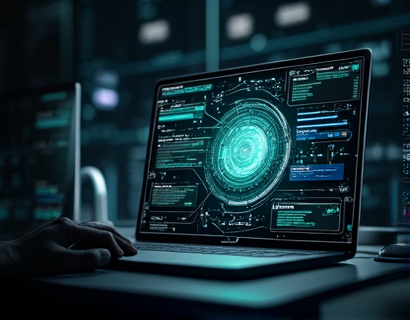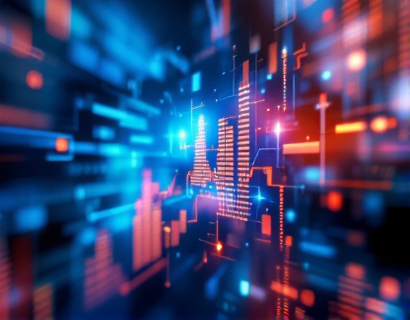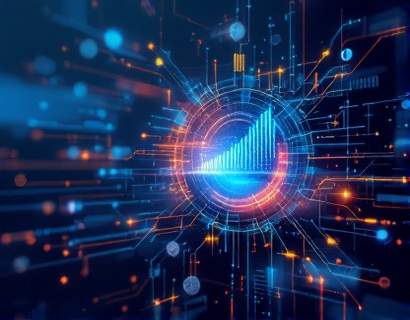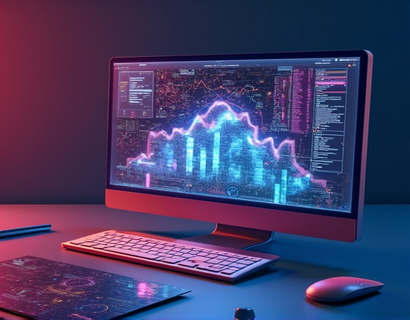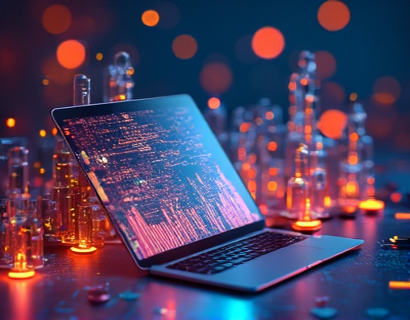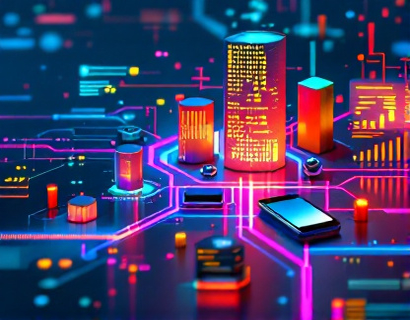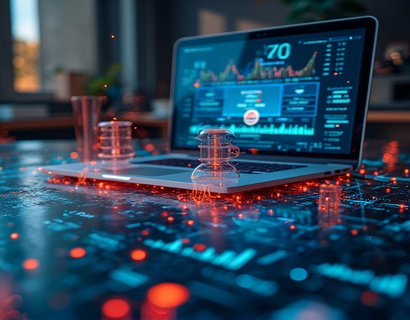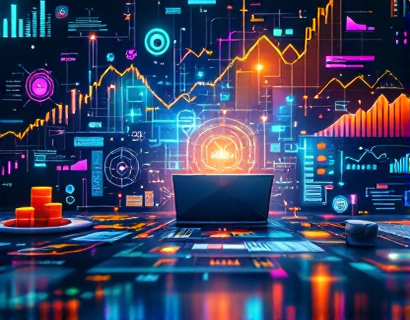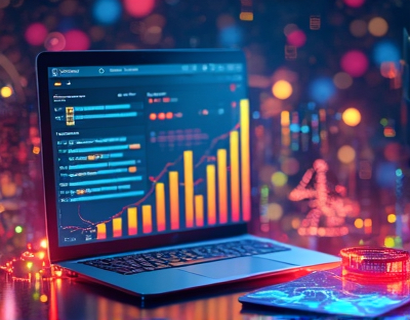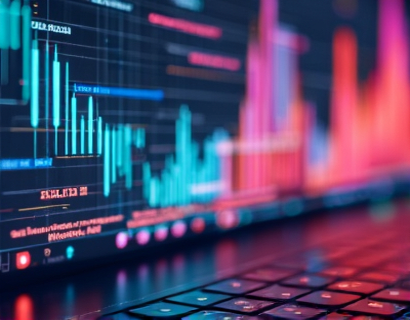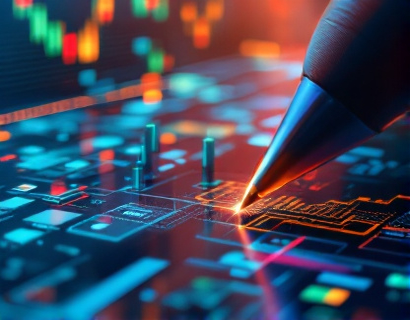AI and Crypto: Pioneering Digital Productivity in the Next Generation
The intersection of artificial intelligence and cryptocurrency is giving rise to transformative technologies that are redefining digital productivity. As we navigate the complexities of the digital age, the convergence of these two cutting-edge fields is yielding innovative solutions that streamline tasks, enhance efficiency, and open new avenues for tech innovators and early adopters. This article delves into the ways AI and cryptocurrency are merging to create next-generation applications that are set to revolutionize the way we work and interact in the digital realm.
The advent of AI has already brought about significant changes in various industries, from healthcare to finance, by automating routine tasks, providing insights through data analysis, and enhancing decision-making processes. When combined with the decentralized and secure nature of cryptocurrency, the potential for innovation becomes even more profound. Cryptocurrency, with its blockchain technology, offers a transparent, immutable, and secure platform that can be leveraged to build trust and efficiency in AI-driven applications.
Enhancing Task Automation with AI
AI-powered tools are increasingly capable of automating complex tasks that traditionally required human intervention. From scheduling and project management to data entry and customer service, AI algorithms can perform these tasks with high accuracy and speed. For instance, AI-driven virtual assistants can manage calendars, set reminders, and even draft emails, freeing up valuable time for more strategic work. These tools are not only improving productivity but also reducing the likelihood of human error, ensuring that tasks are completed efficiently and effectively.
Moreover, AI can analyze vast amounts of data to identify patterns and trends, providing valuable insights that can inform business decisions. Machine learning models can predict market trends, optimize supply chains, and enhance customer experiences by personalizing interactions. When integrated with blockchain, these insights can be shared securely and transparently, fostering trust and collaboration among stakeholders.
Blockchain and AI: A Synergistic Combination
The integration of blockchain and AI creates a powerful synergy that enhances the capabilities of both technologies. Blockchain's decentralized ledger ensures that data is tamper-proof and transparent, which is crucial for AI systems that rely on large datasets for training and operation. By using blockchain, AI applications can access reliable and secure data sources, reducing the risk of data breaches and ensuring the integrity of the information used by AI algorithms.
Smart contracts, a key feature of blockchain technology, can automate and enforce agreements without the need for intermediaries. When combined with AI, smart contracts can execute complex tasks based on predefined conditions, ensuring that processes are executed accurately and efficiently. For example, in supply chain management, AI can optimize logistics and inventory levels, while smart contracts can automate payments and ensure compliance with contractual obligations.
Decentralized AI Marketplaces
One of the most exciting applications of AI and cryptocurrency is the emergence of decentralized AI marketplaces. These platforms allow developers and businesses to buy, sell, and trade AI models and data sets in a secure and transparent manner. Cryptocurrency facilitates transactions, eliminating the need for intermediaries and reducing costs. This democratizes access to AI technologies, enabling smaller organizations and individual developers to leverage advanced AI capabilities without significant financial barriers.
Decentralized AI marketplaces also promote innovation by fostering a community-driven approach to AI development. Developers can share their models and collaborate on projects, leading to faster advancements and more robust solutions. The use of blockchain ensures that contributions are credited and rewarded appropriately, incentivizing participation and innovation.
Enhancing Security and Privacy
Security and privacy are paramount in the digital age, and the combination of AI and cryptocurrency offers robust solutions to these challenges. AI can detect and mitigate security threats in real-time, identifying anomalies and potential vulnerabilities in systems. Machine learning algorithms can adapt to new threats, providing a dynamic and proactive defense mechanism.
Cryptocurrency, with its cryptographic techniques, ensures that data is encrypted and secure. Blockchain's immutable nature means that once data is recorded, it cannot be altered or deleted, providing a tamper-proof record. This is particularly important for AI applications that handle sensitive information, such as personal data or financial transactions. By leveraging blockchain, AI systems can maintain the confidentiality and integrity of data, building trust among users.
Improving Data Management and Analytics
Data management and analytics are critical components of modern business operations. AI and blockchain together offer advanced solutions for managing and analyzing data. AI can process and analyze large datasets quickly, extracting meaningful insights that can drive decision-making. Blockchain ensures that the data used for these analyses is accurate, consistent, and secure.
Decentralized data storage solutions, such as those built on blockchain, allow organizations to store data across a network of nodes, reducing the risk of data loss and enhancing accessibility. AI algorithms can then access this data in a secure and efficient manner, providing real-time analytics and insights. This combination not only improves data management but also enhances the overall performance of AI-driven applications.
Challenges and Considerations
While the potential of AI and cryptocurrency in transforming digital productivity is immense, there are several challenges and considerations to keep in mind. One of the primary challenges is the technical complexity involved in integrating these technologies. Developers need a deep understanding of both AI and blockchain to create effective solutions. Additionally, the regulatory landscape for cryptocurrency is still evolving, and compliance can be a hurdle for businesses looking to adopt these technologies.
Another consideration is the energy consumption associated with blockchain, particularly proof-of-work systems. While newer consensus mechanisms like proof-of-stake are more energy-efficient, the environmental impact remains a concern. Developers and organizations must prioritize sustainability when designing and implementing AI and blockchain solutions.
Future Prospects
The future of AI and cryptocurrency in digital productivity is bright, with numerous opportunities for innovation and growth. As AI continues to advance, we can expect more sophisticated applications that integrate seamlessly with blockchain technology. The development of more efficient consensus mechanisms, the rise of quantum computing, and the expansion of decentralized networks will further enhance the capabilities of these technologies.
For tech innovators and early adopters, the convergence of AI and cryptocurrency presents a unique opportunity to be at the forefront of a technological revolution. By embracing these next-gen solutions, they can gain a competitive edge, streamline operations, and drive innovation in their respective fields. The key is to stay informed, experiment with new technologies, and collaborate with like-minded individuals to push the boundaries of what is possible.
In conclusion, the integration of AI and cryptocurrency is transforming digital productivity in profound ways. By automating tasks, enhancing security, and improving data management, these technologies are paving the way for a more efficient and secure digital future. As we continue to explore and harness the potential of AI and cryptocurrency, the possibilities for innovation and growth are limitless.






